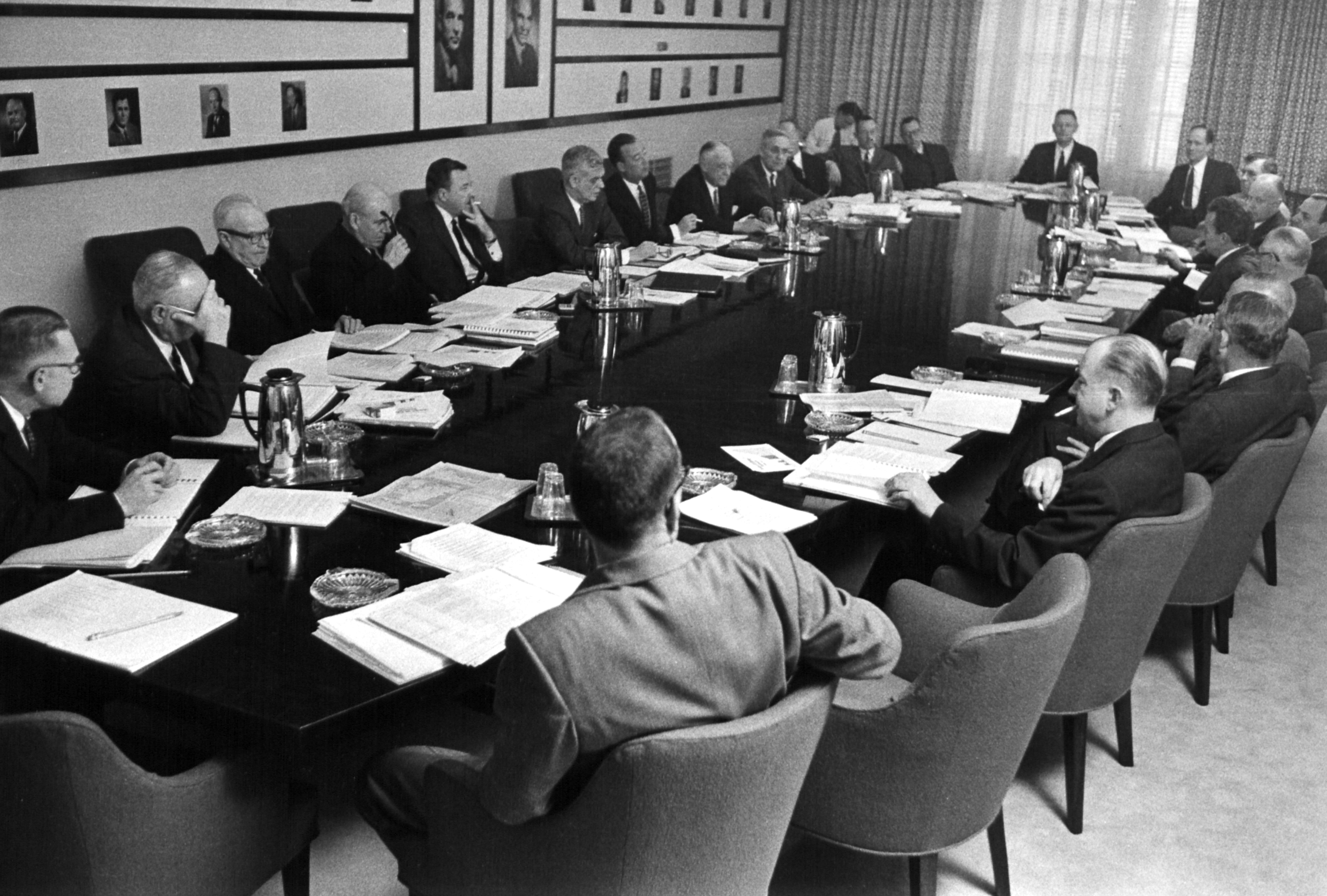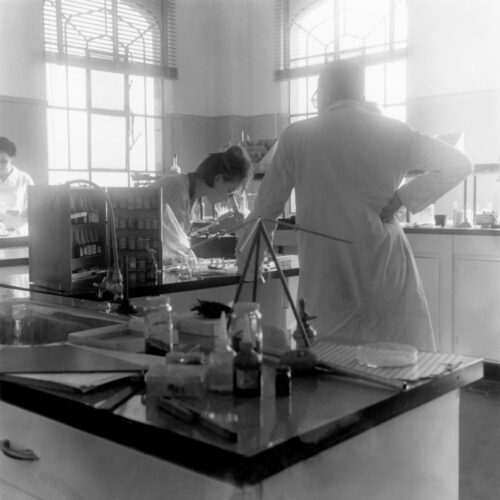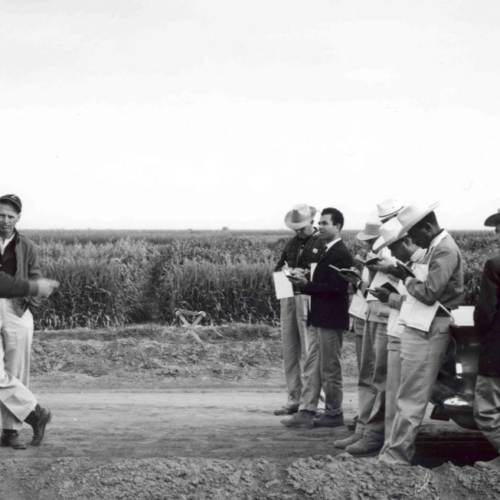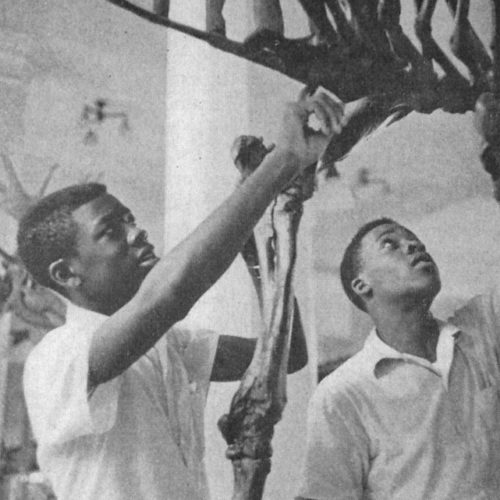Our New Research series provides us with an opportunity to highlight recent archival research at RAC. It presents recently published reports submitted by researchers who have received RAC travel stipends to pursue their studies in our archival collections. In this edition of our series, the authors’ reports reflect their use of a number of different collections. They include two sets of materials from the Rockefeller family archives: the personal papers of Nelson A. Rockefeller and the records of the Office of the Messrs. Rockefeller. Also cited are records from the Ford Foundation and the American International Association for Economic and Social Development.
“The Ford Foundation, Psychometric Experts, and the Dissemination of Aptitude Testing for College Admission in Latin America during the Cold War” by Cristina Alarcón López
In “The Ford Foundation, Psychometric Experts, and the Dissemination of Aptitude Testing for College Admission in Latin America during the Cold War,” Cristina Alarcón López looks at networks of psychometric experts who transformed the college entrance process in Latin America during the Cold War. They were trained, funded, and supported by a set of US non-profit institutions that promoted this series of changes. The Ford Foundation, the Education Testing Service, and the College Board, with the backing of UNESCO, saw the dissemination of psychometric examinations as a way to “modernize” the Latin American university admissions process so that it could respond effectively to expansion of elementary and secondary education advances in the region. The researcher notes that while the acceptance and impact of testing standards such as the Scholastic Aptitude Test (SAT) in the United States has been well-studied by scholars, her research on Latin America is part of a new push to understand this phenomenon elsewhere in the world.
Cristina Alarcón López is a lecturer in the Department of Education at the University of Vienna. Her research interests include comparative and historical perspectives on educational governance and public-private partnerships and neoliberalization in Latin America.
“The 1963 Ford Foundation Program for Film Makers and the Networks of Experimental Cinema,“ by Lola Remy
At the RAC, Lola Remy looked at Ford Foundation records documenting an interesting one-time grant program that this philanthropy developed in the 1960s. Her report, “The 1963 Ford Foundation Program for Film Makers and the Networks of Experimental Cinema,“ centers on the foundation’s effort to support the work of creative art forms frequently seen to be on the periphery of the film industry. Lola Remy’s research reveals that while the Ford Foundation was eager to fund these artists, it faced challenges in setting grantee criteria, as there was no clear delineation of what exactly constituted experimental filmmaking. To help with this process, it creatively structured the grantmaking process; Ford reached out to 410 members of the experimental filmmaking world to nominate two candidates for the grant, with the subsequent list of nominees reviewed by a committee selected by the foundation. Lola Remy discovered evidence in the Ford Foundation archives of an interesting aspect to this whole process that contradicts the standard narrative about these experimental filmmakers. Often viewed as individualistic loners, in this situation, they responded to the grant nomination structure by contacting one another about mutually nominating each other.
Lola Remy is a doctoral candidate in Film and Moving Image Studies at Concordia University, Montreal. Her dissertation looks at the development of experimental cinema in the postwar era. More broadly, Lola Remy’s research interests include postcolonial theory, film and ethnographic archives, and indigenous films and media.
“Creative Capitalism: Nelson Rockefeller’s Development Vision for Latin America and the World,” by Elizabeth Barrs
Elizabeth Barrs’s research report, “Creative Capitalism: Nelson Rockefeller’s Development Vision for Latin America and the World,” makes extensive use of the records of the American International Association for Economic and Social Development (AIA) records. This organization was founded by Nelson A. Rockefeller in 1946 as a privately financed non-profit philanthropic organization which aimed to promote “self-development and better standards of living, together with understanding and cooperation” in Latin America. A main focus of the researcher’s report is AIA’s relationship with the International Basic Economy Corporation (IBEC). IBEC was also founded by Nelson Rockefeller immediately after his creation of AIA and it was developed as a private business enterprise that would focus on upgrading the “basic economies” of lesser-developed nations by lowering food prices, building sound housing, mobilizing savings, and fostering industrialization. Of particular interest to her was the complex, yet intertwined, relationship between the two, one a non-profit organization and the other a for-profit business, in addressing a variety of economic and agrarian issues in post-WWII Brazil and Venezuela. Elizabeth Barrs sees Nelson Rockefeller’s “creative capitalism,” whereby development was driven by this new partnership between philanthropies and corporations, as being in step with President Truman’s postwar Point IV policy agenda.
Elizabeth Barrs is a doctoral student in history at the University of Montana and an adjunct professor at Missoula College. Her particular research interests include the role of non-profit organizations in American political economy and foreign policy.
“America’s Global Civil Religion: Making the UN Sacred in the Postwar US,” by Matthew Hedstrom
Matthew Hedstrom is an associate professor of history at the University of Virginia with a deep interest in religion and culture and how they intersect in American society. At the RAC he examined records pertaining to the United Nations. In “America’s Global Civil Religion: Making the UN Sacred in the Postwar US,” he provides insight into how US backers of this newly-founded global institution articulated their support using religious language and imagery. Dr. Hedstrom found records in our collections documenting the extent to which members of the Rockefeller family were directly involved with crafting this new civic religion. By providing venues for series of prayers, sermons by religious leaders, and community celebrations, they tapped into religious themes that resonated with the US public, and integrated discussions of the UN with notions of community bonds and sacred goals for the “American experiment.”
About the RAC Research Stipend Program
The Rockefeller Archive Center offers a competitive research stipend program that provides individuals up to $5,000 for reimbursement of travel and accommodation expenses. Learn more on our Research Stipend page



